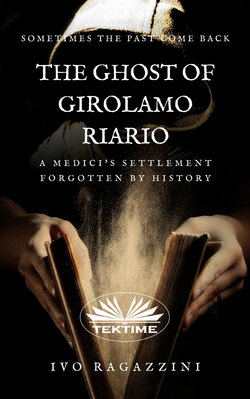Читать книгу The Ghost Of Girolamo Riario - Ivo Ragazzini - Страница 9
Damnatio memoriae: The condemnation to be forgotten by history
Оглавление“Have you ever wondered why you know a lot of things and facts about someone, while about others you only know some little things existed or happened but little or nothing is really well known about or what happened?” asked the witness.
“Yes, but I think it's due to the fact that in the place where he lived or where something happened, there were no good writers or reporters who decided to write the events. And so the memory of someone or something was lost”, replied the researcher.
“It may be almost true, but you said well at the end of your answer: in the end the memory of someone or something was lost”.
“Well, this is also possible for various reasons”.
“Yes, it is possible. But there are also some ways to make this succeed. It's almost impossible that something happen in one place and no one seeing nothing happen or forgetting all about, unless someone hard work to forget facts or make someone else forget everything”, replied the witness.
“I'm listening, continue your speech”.
“In contrast to events and characters from the past, of which we always know something, almost nothing is left about Riario and his exploits, including most of the official documents he wrote and signed”.
“Even the memories, sayings and tales that are usually handed down orally about someone, seem to be no longer present for Riario, while for his wife Caterina Sforza there are letters, written stories, sayings and memories that go on in time”.
“What's the cause?”
“Damnatio Memoriae, so the Latin people called it. It was a condemnation to be forgotten and removed from historical memory.”
“A practice that Romans and Egyptians had been doing for a long time and was used even after them to erase someone from history”, explained the witness.
“Basically every memory and thing the person had done in life was erased. Every writing he wrote, every image in which he was portrayed, every coat of arms and everything that remembered he. If the person had had coins minted with his name or image, it was forbidden to use them and they had to be handed over to be melted down or minted again in another form”.
“Even his properties were razed to the ground and stripped of all memory and that's what they did with Riario”.
“That was also what Caterina Sforza did in revenge for Riario's murderers when she took them and razed their houses and their property. So all memories and things about them would also disappear and they would be erased and forgotten from history too”.
“And where are these things written now?” asked the researcher.
“I have no idea where they are written now. But I can tell where they were written in the past”.
“Tell me”.
“The chronicler Leone Cobelli wrote some of them in his chronicles and, if you look at his original correspondence, you will see that some pages right in the spot that mention the facts of Caterina and Riario have been scratched and torn out”.
“Also another writer and chronicler from Forlì, very well known at the time, Guido Peppo, surnamed ‘della Stella’22, came to the same conclusions but now all of his writings no longer exist”.
“He had written many history books that told many facts and chronicles that happened in Romagna but all his writings disappeared, because he had been Riario's friend and his personal chronicler and perhaps for some other reason”, explained the witness.
“Who was this Guido Peppo, known as ‘della Stella’?”
“A writer and healer from Forlì, able to read and translate ancient Hebrew and Greek like few others in Italy”.
“Would a ghost have whispered all this in your ears?” asked the researcher.
“No, the first to tell me was my great-grandfather when I was eleven” replied the witness.
“Did your great-grandfather explain all these things to you when you were eleven?” asked again the researcher in disbelief.
“As strange as it seems to you, that's exactly what it is”.
